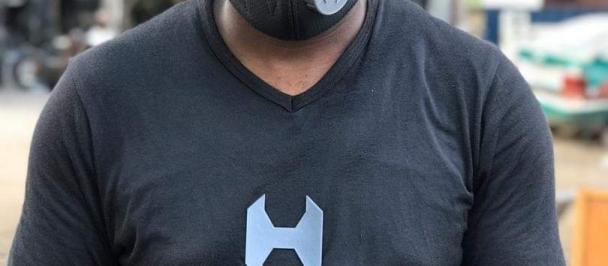According to the UNDP’s Acceleration Laboratories operating protocol, the central value of solution mapping is the ethnographic method, which is based on a whole intrinsic behavioral analysis of the community that originated from an innovation. In addition to this method, certain approaches make it possible to identify upstream innovations adapted to communities. Thus, forums such as the 1st National Forum for Technological Innovation (NFTI) organized on innovation issues, and online digital platforms should be used to identify innovative solutions.
--- Image caption ---
The supporters Behind the scenes of the event organized for the valorization of innovations and research results
The Congolese government, through the Ministry of Supervision and in partnership with UNDP, has resolved to promote the research results, innovation and creativity of Congolese genius Hence the organisation in Pointe-Noire (the Republic of Congo) from the 15th to the 17th December 2021 of this 1st National Forum for Technological Innovation (NFTI) under the theme: <<Science, technology and innovation to the service of entrepreneurship and employability of young people and women >>. The Accelerator Lab represented the UNDP Office at this activity, with the aim of bringing key messages about UNDP's AccLab initiative to stakeholders, innovators, inventors and the private sector. Alternatively, the aim was to seek new avenues of partnership in the national innovation ecosystem present at this forum, while expanding UNDP's portfolio of new solutions.
An effective UNDP participation with a success stories component
To achieve the above-mentioned goals, the AccLab carried out an inventory of the experiences and results obtained since its creation. This activity highlighted: the innovation database, which includes more than 200 innovative solutions spread over seven sectors of activity; very robust innovations that cover five of the seventeen SDGs and whose successful experimentation has lead to scaling up. In addition to participating in panels, round tables and scientific workshops, the AccLab team conducted B2B meetings with an entire ecosystem of actors.
Achievements in line with the expected goals
This forum made it possible to find some avenues of partnership with various promising actors. Such as; public institutions (the National Agency for the Valorization of the Results of Scientific Research and Innovation, NAVRI, etc.); academies (école Supérieure de Technologie du Littoral, in scientific and technical partnership with the University of EVRY-VAL-d'ESSONNE in France); private companies (such as the firm of strategic and financial advisors with a vocation of investment banking, to foresee a mobilization of financial resources in favor of innovators in the scaling phase and structural/organizational support in companies); incubators (TotalEnergies, a startup center) and, startups and NGOs. On top of this result, the forum strengthened the portfolio of innovative solutions through the identification of 36 innovative solutions in total, including 1 in the field of energy, 2 in the pharmacopoeia, 4 in agri-food and 29 in new technologies of which 15 are pure digitalization. The awards for best innovations as voted by a jury, in which UNDP was represented, were awarded through a global UNDP funding of USD 5,000.
The prizes included:
- the best startup awarded to the innovation of "Bio Charcoal" (already accompanied by the UNDP) led by Mr. Destin BIBILA (read more about him);
- Youth Talent Award for "non-invasive glycometer and pulse oximeter" by Mr. OTOKA EYENGUET Luvick and finally;
- Women's Talent Award on the innovative solution of "the automatic greenhouse" by Mrs. OVAGA OPA Rhéma.
The NFTI unveiled another approach to identifying innovative solutions in addition to ethnography which is traditionally recommended by the AccLabs operating protocol. This type of event is also a way to build useful partnerships for scaling up the innovations identified by UNDP AccLab. The "Bio-charcoal" solution, for example, having won the "Best Start-up" award at the 1st NFTI, has a satisfactory level of maturity for its scaling up and becoming a business line. The two other award-winning solutions will be specifically the subject of an experiment planned in the AccLab's 2022 Annual Work Plan.
By Matt SEINZOR, Head of Solution Mapping-AccLab Congo

 Locations
Locations